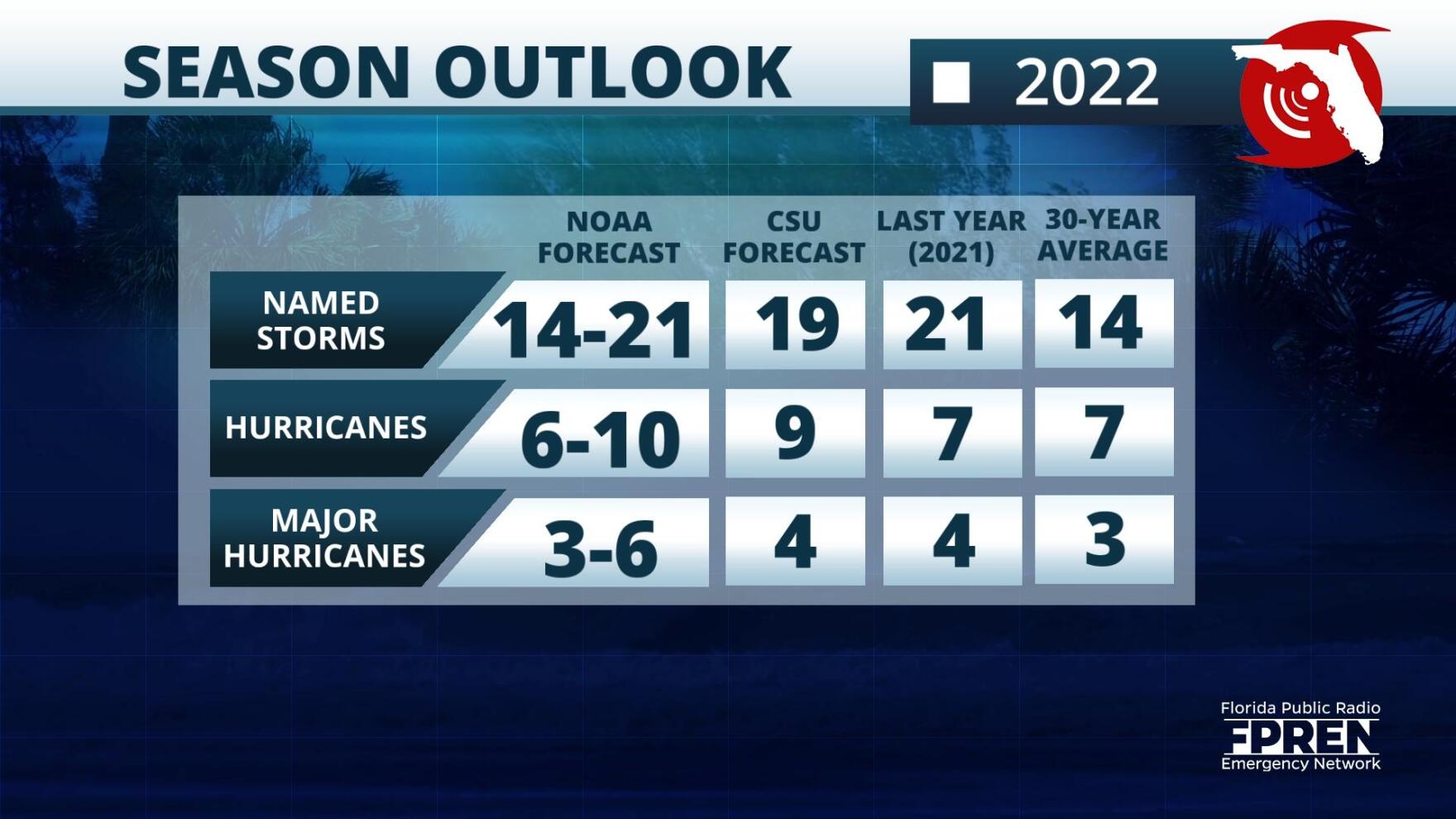
Hurricane experts at the National Weather Service’s Climate Prediction Center (CPC) say that the 2022 tropical season will produce above normal activity in the Atlantic Basin.
Meteorologists at the CPC released their full forecast just before noon on Tuesday. In it, they stated that the probability for a very active hurricane season is high. Between 14 and 21 named storms are expected over the season from June 1 to November 30. Of those named storms, six to 10 are expected to become hurricanes, three to six of which could strengthen into major hurricanes (category 3 or higher). This forecast is similar to that released by forecasters at the Colorado State University (CSU) Tropical Weather and Climate Research Project team. In that report released in April, forecasters also called for an above average season: 19 named storms, nine hurricanes, and four major hurricanes.
In both the CPC and CSU forecasts, meteorologists cite climate signals as major factors behind their forecasts. A persistent La Niña in the Pacific is expected to continue through the summer and into the fall. During La Niña years, wind shear in the atmosphere over the Atlantic basin is suppressed and this can enhance tropical organization. In addition, sea surface temperatures in the Atlantic and the Caribbean are warmer than normal: This can help enhance tropical development and sustain tropical systems this season. Other signals that could enhance activity this season include: a robust West African monsoon and a continued positive phase of the Atlantic Multidecadal Oscillation.
It is important to note that these seasonal outlooks do not tell us when systems will develop or what areas they will impact. Instead, they are meant to serve as a reminder: Above average activity is expected and as such, the probability of a tropical system impacting our area is higher than normal.
Residents are urged to review their emergency plans now, before a system is threatening their area. Resources for devising family plans, emergency kits, evacuating, and preparing your property for natural disasters can be found at floridadisaster.org and ready.gov.
9(MDA5NDY0MjA5MDEzMzcwMjQ4MTUxZWMwMg004))
